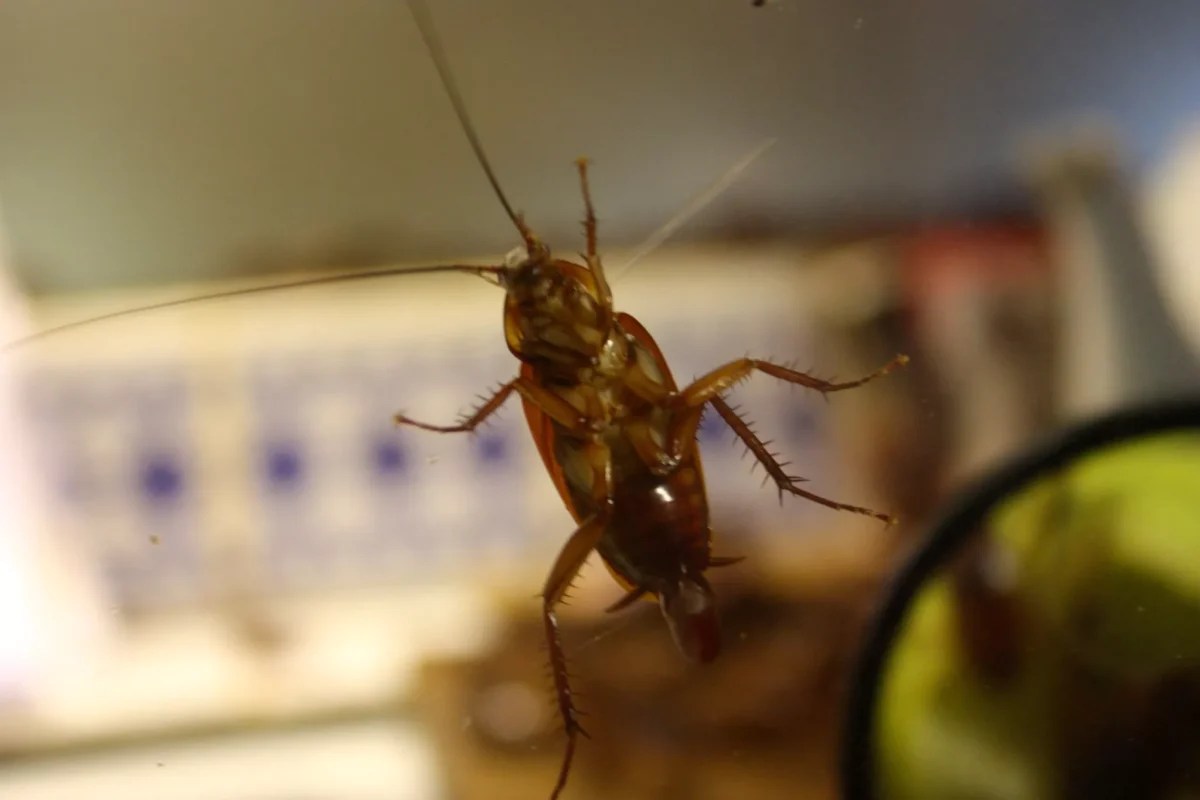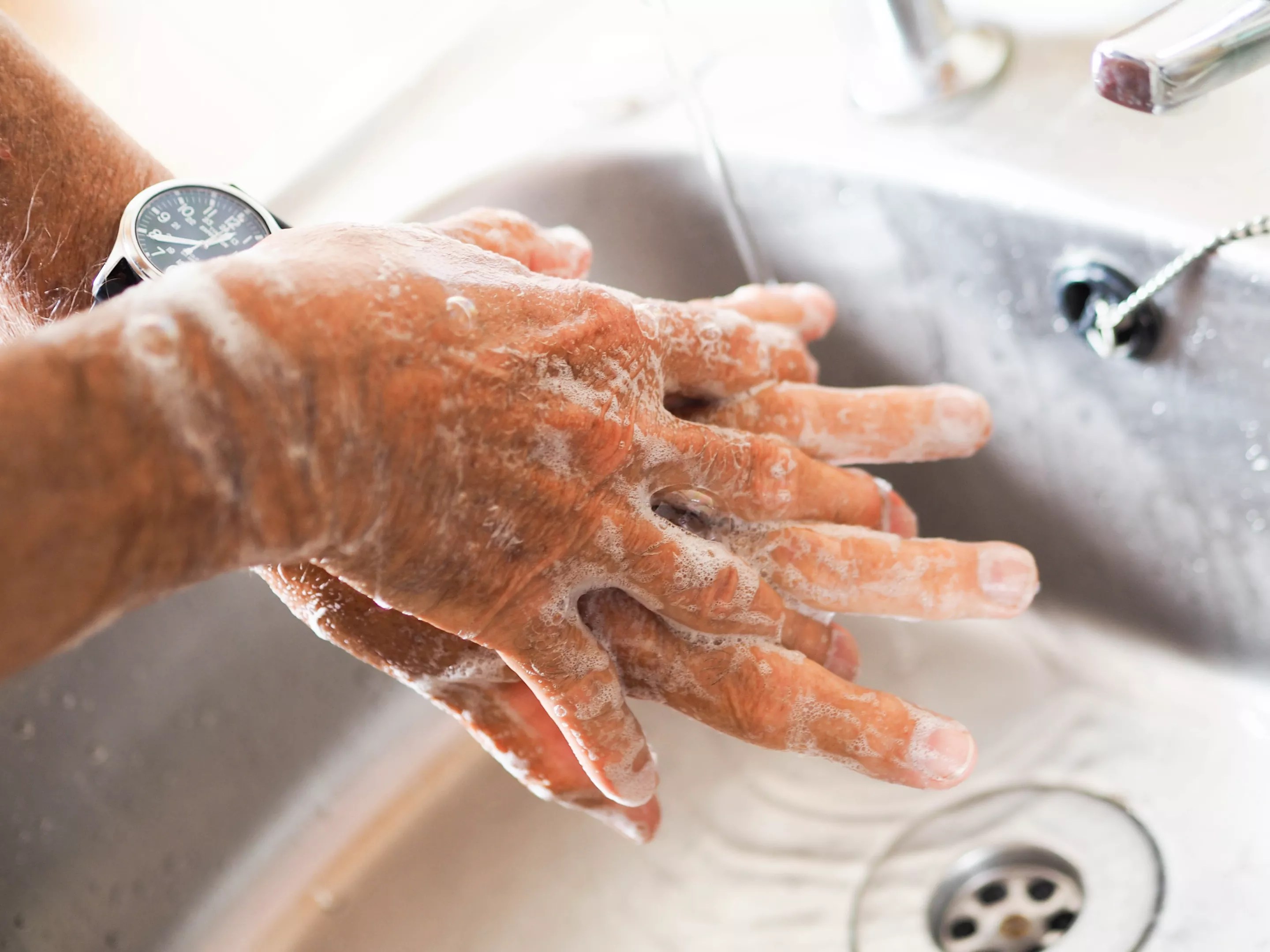

Audio By Carbonatix
Every month, Maricopa County health inspectors fan out around the Valley, making unannounced visits to local restaurants. They stop by to check on the cleanliness of the kitchens and dining rooms, and the safety of staff and customers.
During the visits, the inspectors check everything from plumbing to food temperature to make sure the physical spaces and restaurant practices are up to code. They share their findings in reports that are publicly available via a searchable online database.
The reports rate any issues on a two-step scale of foundational violations and priority violations. The former are less dangerous, but issues that could lead to a larger concern. For example, a lack of soap could lead to improper handwashing. Priority violations are more serious issues that pose an immediate risk to staff or customers.
The inspectors use a grading scale to tally the violations into a letter grade. Any restaurant with three or more priority violations gets a failing score. Restaurants must fix issues in the moment. If a persistent issue can’t be fixed on the spot, the inspector schedules a mandatory reinspection with the restaurant to ensure the problems are addressed.
In August (and the last day of July), inspectors visited a wide range of food businesses, from traditional restaurants to breweries, bakeries and dessert shops. Here are the worst issues they found.

Restaurant inspectors uncovered plenty of issues at Phoenix restaurants last month.
Nicoleta Ionescu/Getty
Pita Jungle
14858 N. Frank Lloyd Wright Blvd., Scottsdale At Pita Jungle in Scottsdale, an inspector noted four priority violations, doled out a “D” letter grade and scheduled a mandatory reinspection on a July 31 visit. The inspector watched an employee touch dirty dishes and then clean dishes without washing their hands. In the walk-in refrigerator, the inspector noted that all of the shelving had accumulated food debris and a large amount of rust. On those shelves, raw eggs were stored over salad dressings and bread products. Cooked chicken, cut tomatoes, cooked onions and vegetables and raw fish were all found at unsafe temperatures. A large prep table cooler was holding at 60 degrees, nearly 20 degrees above the safe zone. Utensils were stored unsafely, such as a knife stored in ice water, a rice scoop with the handle in the rice and an ice scoop with the handle in the ice. Throughout the kitchen, the inspector noted “deeply scored” cutting boards that couldn’t be properly cleaned.
Bianca’s Gelatos and Fun Food
3111 W. Chandler Blvd., Chandler Aug. 4 was a not-so-fun day for Bianca’s Gelatos and Fun Food inside Chandler Fashion Center. An inspector noted three priority violations and scheduled a mandatory re-inspection. The main issue was live cockroaches. Another problem stemmed from carne asada from a local carniceria that was stored at the manager’s home before it was brought in for resale. The inspector noted that “all food must be obtained from an approved source as defined by law.” There was also deli meat at unsafe temperatures, and employee food and drinks were stored above food available for service. The inspector watched an employee handle money and then handle food without washing their hands.
Jack in the Box
13610 N. Scottsdale Road, #31, Scottsdale Four priority violations were noted at Jack in the Box on Scottsdale Road at an Aug. 5 health inspection. The inspector watched an employee touch their phone, then continue making French fry orders, then touch their phone again and then prep egg rolls without washing their hands. The inspector watched a gloved employee touch the floor and then directly touch buns. A refrigerator near the fryer was holding food at 52 to 60 degrees, far above safe temperature. Lettuce, cut tomatoes and shredded cheeses were out at room temperature. A spray bottle of chemical degreaser was stored angled at the service gloves. And in the deep fryer section, three sets of lights were shut off, leading to a dark kitchen.
New India Bazaar
2544 N. Seventh St., #101 After failing a health inspection in April, New Indian Bazaar is back on the list with a similar set of issues in August. A health inspector stopped by the central Phoenix spot on Aug. 5 and noted three priority violations. As they did in the spring, the inspector found live cockroaches on the floor and in sticky traps. They were among old food and grease around the cook line, dishwasher and dry storage areas. The inspector also reported raw eggs stored over an open container of cooked green curry. The dishwashing machine had no chlorine. Cooked tomato sauce, onion paste and cooked spinach were all found at improper temperatures.
The Capital Grille
16489 N. Scottsdale Road, Scottsdale On Aug. 5, an inspector stopped by The Capital Grille in Scottsdale and watched a chef drop a piece of bread on the ground, pick it up off the floor and throw it away, and then plate a steak sandwich without washing their hands. The inspector also watched a chef touch their face and then touch tongs and grill steaks. In the refrigerator, raw beef was stored directly above parsley used for garnishes. Two containers of whipping cream were sitting on the counter and measured at 70 degrees, and roasted garlic was stored above safe temperatures.
Mariscos Sinaloa
3135 S. 48th St., #110, Tempe At Mariscos Sinaloa on Aug. 5, oysters with improper identification were the start of four priority violations. Raw steak was stored directly on top of sauces. Raw bacon-wrapped peppers were stored directly on top of cooked octopus. Large metal mixing wands were stored as clean, but had dried food stuck to them. Boxes of shucked oysters were stored in an old hand soap container, which is not food-safe. And the inspector found a box of sodium sulphite, which the staff explained they add to guacamole to maintain its freshness. The report notes that the sulphites “are not approved for use without prior approval.”
Applebee’s Neighborhood Bar & Grill
2032 E. Baseline Road, Mesa The Mesa location of Applebee’s received two visits from a health inspector in August. On Aug. 6, the inspector noted five priority violations, doled out a letter “D” grade and scheduled the restaurant for a reinspection later in the month. Issues included two containers of moldy strawberries and a chemical dishwasher with no chlorine. Marinara sauce, rice, ham, cheese, turkey, chicken, soup and a laundry list of other foods were all held at unsafe temperatures. The too-warm foods were found throughout the kitchen, in the walk-in refrigerator, the make-line unit, a unit under the grill and in the server station area.

Health inspectors look for items that can directly contribute or lead to the risk of foodborne illness or injury, such as ensuring employees can and do properly wash their hands.
Sean Horsburgh/Unsplash
Cloves Indian Groceries & Kitchen
1930 W. Thunderbird Road, #108 Cloves received a visit and three priority violations on Aug. 6. The inspector watched a staff member handle the inside of a trash can and then continue to touch food without washing his hands. Another employee was eating, touched her fingers directly to her mouth, and then put on a glove for food service. The problems with handwashing could have been related to a lack of paper towels and a trash can blocking the main hand sink. In the refrigerator, raw chicken was stored above cooked goat curry. And lastly, tofu curry, goat curry, samosas and rice were sitting out on the counter and measured between 86 and 111 degrees.
Honeymoon Sweets
606 W. Southern Ave., #1, Tempe Honeymoon Sweets earned three priority violations on an Aug. 11 health inspection. The inspector found moldy mascarpone and multiple out-of-date foods. Ham and garbanzo beans were dated July 26 and pistachio frangipane, which contains dairy, was from July 25. Cheesecake, croissants with cheese, quiche and chorizo were all stored above safe temperatures, and chemical spray bottles were unlabeled.
Osaka Japanese Steakhouse
6730 E. Superstition Springs Blvd., Mesa On Aug. 12, an inspector noted four priority violations, and ten more foundational violations at the Mesa location of Osaka Japanese Steakhouse. Major issues included handwashing, as the inspector watched an employee walk in from outdoors, through the kitchen directly to the sushi bar without washing their hands. A cook handled raw beef and then touched utensils and clean plates. Raw shrimp and scallops were stored above limes and lemons. Tofu, cooked broccoli and premade salads were stored at an unsafe temperature. Bottles of sauces and oil weren’t labeled, and a baster was attached with silicone to a sauce bottle for pouring sake. The inspection report noted that silicone is not food safe, and required the homemade contraption be thrown away. There was no mop sink inside the restaurant, and instead, mop water was spilled onto the ground outside and mop heads were found drying outside against a shed. The inspector found “a heavy accumulation of debris” around the dumpsters, including grease dumped on the floor. Inside the kitchen, grease was built up on the floor and on the sides of the fryers. Due to the number of issues found in the visit, the report noted that “legal action may result from this inspection.”
Chennai Chettinaad Palace
2814 W. Bell Road, #1454 On Aug. 14, Chennai Chettinaad Palace earned three priority violations, the worst of which was “live insects in rice flour.” The inspector also watched an employee sweep the floor, pick up trash and then touch clean utensils and equipment without washing their hands. There was no soap at the hand sink and there were open containers of spices. Noodles and pastries were stored at unsafe temperatures and the inspector found rice and noodles with no date markings.
EVO Restaurant
15507 N. Scottsdale Road, #100, Scottsdale At EVO in north Scottsdale, an Aug. 14 inspection turned up three priority violations and earned the restaurant a mandatory re-inspection. The inspector watched a dishwasher handle and rinse dirty dishes, put them in the dish machine and then touch clean dishes without washing their hands. That lack of handwashing may have been connected to multiple malfunctioning sinks. At the handwashing sink near the grill, the hot water was turned off, because it was causing the sink to drip. At the handwashing sink in the bar, the inspector found the opposite problem. There was no cold water, so the water intended for handwashing was 130 degrees. Another handwashing sink, between the pizza station and dish machine, was inoperable altogether. In the walk-in refrigerator, raw chicken was stored above cooked lobster tails. Pomodoro sauce, milk, cream, pasta, cooked vegetables and short rib were all stored above safe temperatures.
Anhelo
7007 E. First Ave., Scottsdale The brand new location of fine dining restaurant Anhelo didn’t have a great time on an Aug. 19 inspection. The new eatery earned five priority violations and a mandatory re-inspection. There was no certified food protection manager on site, which is required by law. Pickled fennel, risotto, cooked mushrooms, onions and lemon butter sauce were all found to be too warm, and the inspector found the reach-in cooler holding at 48 degrees. Duck, prosciutto and thawed scallops were found in improper packaging. Vegetable stock and cooked fillet were out of date.
Ramen Time
1857 N. Scottsdale Road, Tempe Ramen Time earned four priority violations on an Aug. 19 health inspection, the worst of which involved dead cockroaches under the fixtures in the bar. In that same area, the inspector found food scraps and mold. Also on the floor, the restaurant was storing buckets of soy sauce. In the reach-in fridge, eggs and raw pork were stored above chashu. Rice was being held at an unsafe temperature in a rice cooker. Many items, such as tofu, chicken and pork, were found without any date markings. There was a “heavy buildup” of fats, oils and grease on the walls and floors by the cook line, fryer and in the ventilation hood.
Cooper’s Hawk Restaurant & Winery
3325 W. Chandler Blvd., Chandler The Chandler location of Cooper’s Hawk was visited by an inspector on Aug. 20, who found four priority violations. The inspector watched an employee touch raw fish, then touch the butter dispenser and a spatula without washing their hands. They also watched an employee who was wearing gloves touch their clothes and then continue touching food. The kitchen was using a dishwasher without any chlorine. And cooked rice and potatoes were found at unsafe temperatures.
State 48 Brewery
345 W. Van Buren St. The downtown Phoenix location of State 48 Brewery earned three priority violations and a “D” letter grade on an Aug. 25 inspection. The worst issue was old food. Ready-to-eat foods must be used within seven days, and the inspector found bacon jam from July 17, sauerkraut from Aug. 5 and pasta and pork juice from Aug. 11. There was also a refrigerator unit found to be at 51 degrees, storing meatloaf, raw burger patties, raw salmon, deli meat and cheese above safe temperatures. The prep sink was also leaking water and the gaskets and doors to the cold holding unit beneath the grill were in “disrepair.”